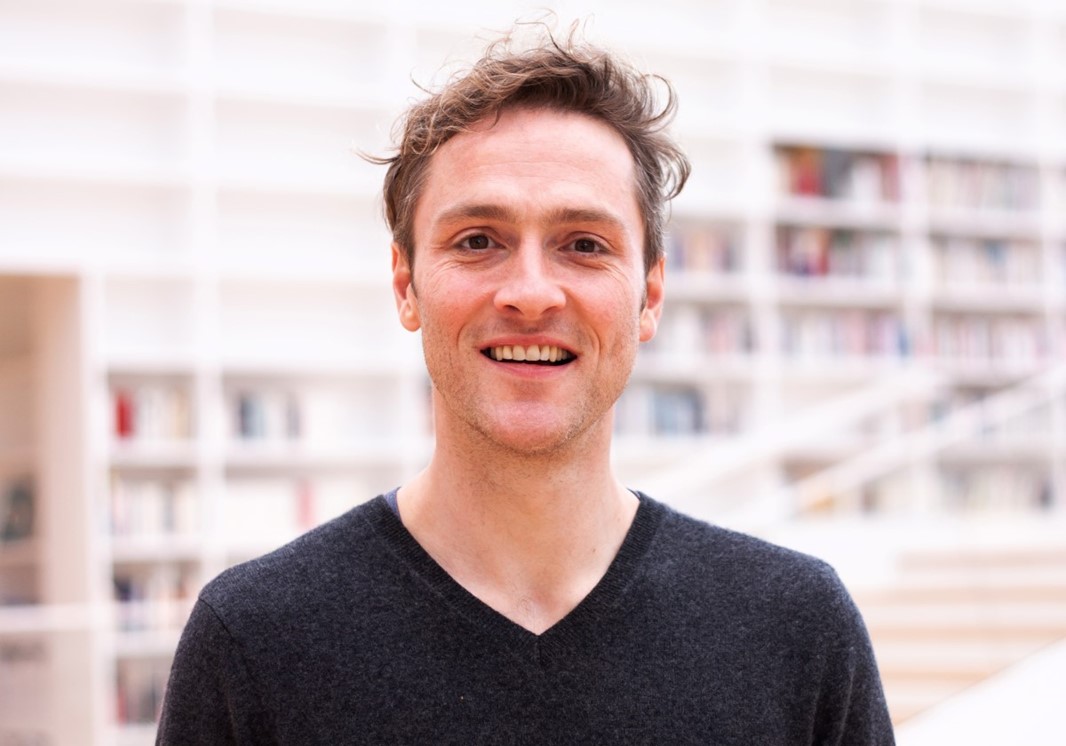Is Going From a Bs in English Education to an Ma in Linguistics a Easy Transition

A masters in applied linguistics was just an easy google search away for graduate student Robert Dormer, a British citizen, working full time in Japan, while studying at Dalarna University. "Of all my studies, the one in Dalarna has been the most useful by far" says Dormer, who is an advocate of distance e-learning, a field he has acquired some expertise in throughout the years.
Surprisingly easy to search
Robert Dormer, 39, currently lives in Japan, where he teaches at Hiroshima Jogakuin University, a position he attained two years ago.
His first degree was in philosophy, and he already had a masters in linguistics when he applied to Dalarna University and the Master Programme in Applied English Linguistics. The application process was a pleasant surprise, as it was very easy and self explanatory:
"I just googled. I found the course through the distance learning portal Study in Sweden, a Swedish website. I contacted the linguistics professor at Dalarna, Annelie Ädel, through the undersite. Everything was in English, so it was really easy. Frankly speaking I am surprised that not more people are applying. In the UK very similar courses are oversubscribed" said Dormer.
He wanted to focus on corpus linguistics, and both of his professors at Dalarna could provide teaching in that speciality.
"Through this course I learned corpus analysis and text analysis. I use them in my research," said Dormer.
First visit in Falun
The linguistics programme at Dalarna is run by researchers who specialise in applied linguistics. Research areas include discourse analysis, writing and speaking in English, second language acquisition, sociolinguistics and computer-mediated communication.
The focus of the programme is the English language in different contexts and different communicative situations.
I catch Robert Dormer at Arlanda Airport. He is on his way back to Britain, for a quick stop, before he heads back to Hiroshima, Japan. Robert Dormer has been at student at Dalarna University for almost two years, but this week has been his very first visit to Falun and the only time he has met his professors in real life.
But the first meeting did not feel awkward or strange at all. Instead, it was a meeting of people who already know and feel perfectly comfortable with each other.
"Until yesterday I had only met them online. It is a good measurement of the distance programme that when we met it certainly did not feel like meeting for the first time. Jonathan and Annelie are so friendly, and very informal. It was quite interesting to have so much contact with the professors online."
Distance learning is a great way of studying
"There are a number of positive things. I am finishing my third distance learning and the big difference is that although the programmes are all online other distance programmes have very little, if any, face to face time. At Dalarna virtually everything is online with cameras" said Dormer, who is surprised how much more effective distance learning can be.
"Being completely honest I feel that at Dalarna, with the small group sizes and online face to face time with professors, I had more face to face time than while on campus in the United Kingdom", said Dormer who prefer to use the internet, where he can organise files and take part virtually from anywhere in the world with an internet connection.
"Normally we met online once a week, and in between there are assignments and discussions. We use mixed media. Obviously the software allows us to discuss in between sessions, we have lots of online discussions."
He uses two screens, "one monitor for the class and one for the information" which makes it easier to take notes while participating."
"My understanding is that half of the classes are by distance at Dalarna and this expertise really shows in the teachers. Dalarna has so much experience with online teaching."
Dormer is teaching full time at the Hiroshima Women's University. Distance learning is a great way for people who already have jobs but consider further education, he thinks.
"Distance learning is great at Dalarna. I am considering taking a Japanese course online. Dalarna is a hidden gem with a lot of interesting courses. I only wish I had more time", he says, laughing.
During 2020 it is still possible for UK students to enrol. There will be a three year-limit to finish classes, but during the transitional Brexit year of 2020 students may enter new programs within the European Union.
Experienced teachers and small groups
He wishes to extend his gratitude to Sweden for offering this high quality distance programme, and encourages people to apply.
"Those who have family and work commitment and are looking for first time graduate studies should seriously look at Dalarna, the teachers are so experienced at virtual delivery, it means that there is that perfect balance of convenience and support, with lots of face to face contact and small classes".
Dormer has made online friends from the class, also people he has not met IRL.
"I am in fairly regular social media contact with the people I studied with. We made a Facebook group, and we email and chat. I think it is a fairly good simulation of what you get at campus. We meet each other online as well."
Written by Anna Gullberg
Source: https://www.du.se/en/study-at-du/programmes-courses-and-course-packages/programmes/master-programme-in-applied-english-linguistics/
Belum ada Komentar untuk "Is Going From a Bs in English Education to an Ma in Linguistics a Easy Transition"
Posting Komentar